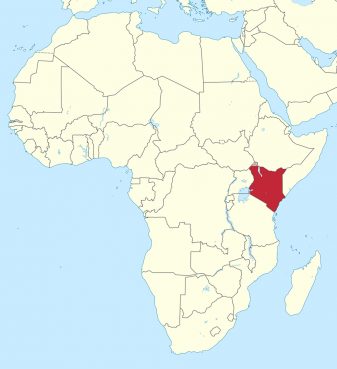
NAIROBI, Kenya (RNS) — As his followers around the world mourned Fethullah Gulen, the influential Turkish Muslim scholar and cleric, religious and human rights groups decried the Kenyan government’s decision to repatriate four members of the Gulen movement to Turkey, where Gulen was persona non grata.
Gulen, who died on Sunday night (Oct. 20) at age 83 while undergoing treatment for heart and kidney failure at a hospital near his home in Pennsylvania, built a powerful global movement focused on education, service and the values of its founder’s Sufi Muslim faith. In much of the world, it is known as the Hizmet movement, after the Turkish word for service.
In Kenya, the movement runs schools, carries out charity work and is involved in interfaith dialogue activities in partnership with other religious groups and institutions.
For more than two decades, after falling out with Turkish leader Recep Tayyip Erdogan, the cleric had lived in self-exile in the United States. In 2016, Erdogan accused Gulen of masterminding an attempted coup on Erdogan’s regime that left 250 dead. Although Gulen denied the allegation, the government designated the Hizmet movement a terrorist organization and successfully quashed its presence in the country.
Since then, Turkish authorities have also used their influence to crack down on individuals and groups linked to the movement abroad.

Kenya, red, located in eastern Africa. (Map courtesy of Creative Commons)
On Friday, masked men abducted several Turkish nationals in Nairobi, Kenya’s capital, and on Monday, responding to pressure from human rights groups, lawyers and religious leaders, the Kenyan government confirmed it had repatriated four refugees at Turkey’s request.
“They have been residing in Kenya as refugees,” said Korir SingOei, principal secretary of foreign affairs in the Ministry of Foreign and Diaspora Affairs, in a statement. “The Ministry of Foreign Affairs and Diaspora Affairs has received re-assurances from Turkish authorities that the four will be treated with dignity in keeping with national and international laws.”
SingOei said Kenya deported the four because of the strong relations between the two countries. For more than two decades, Turkey has increased its contacts with African countries in economic, cultural and military spheres, selling arms and shoring up electrical grids. According to the Turkish foreign ministry website, the country “has been recognized as a leading emerging development partner in Kenya.”
Among the four returned Turks is Mustafa Genc, who had lived in Kenya for more than 23 years and dedicated his life to education and intercultural dialogue. He was serving as the executive director of Harmony Institute, an organization that works to foster unity and equality through intercultural and interfaith dialogue in Kenya.
“I have interacted with Mustafa and Harmony Institute for many years,” said the Rev. Innocent Halerimana Maganya, former director of the Institute for Interreligious Dialogue and Islamic Studies at Tangaza Catholic University. “We never spoke about politics. It was rather about harmony, peace, social cohesion, care for the poor and vulnerable, interreligious dialogue and education.”
The others are Ozturk Uzun, a staff member of Light Group of School; Alparslan Tasci, who had been in Kenya seven years helping provide water, food and education to orphanages, care homes and poor women; and Huseyin Yesilsu, who for nine years had worked in education.
Necdet Seyitoglu, a British national abducted alongside the Turkish nationals, said he was released after eight hours after producing his passport.
“It is shocking the people had been repatriated, yet they were under U.N. protection as refugees,” said Halerimana Maganya.
Catholic Bishop Willybard Kitogho Lagho of Malindi, the chairman of the Inter-Religious Council of Kenya, said: “This incident marks a disturbing trend in Kenya. A country once regarded as a safe haven for refugees is now becoming a hostile and dangerous environment for those seeking protection.”
This is not the first time Kenya has forcefully repatriated a Turkish national. In 1999, Turkish forces arrested Kurdish separatist leader Abdullah Ocalan and flew him back to Turkey, where the authorities convicted him of treason and separatism.
